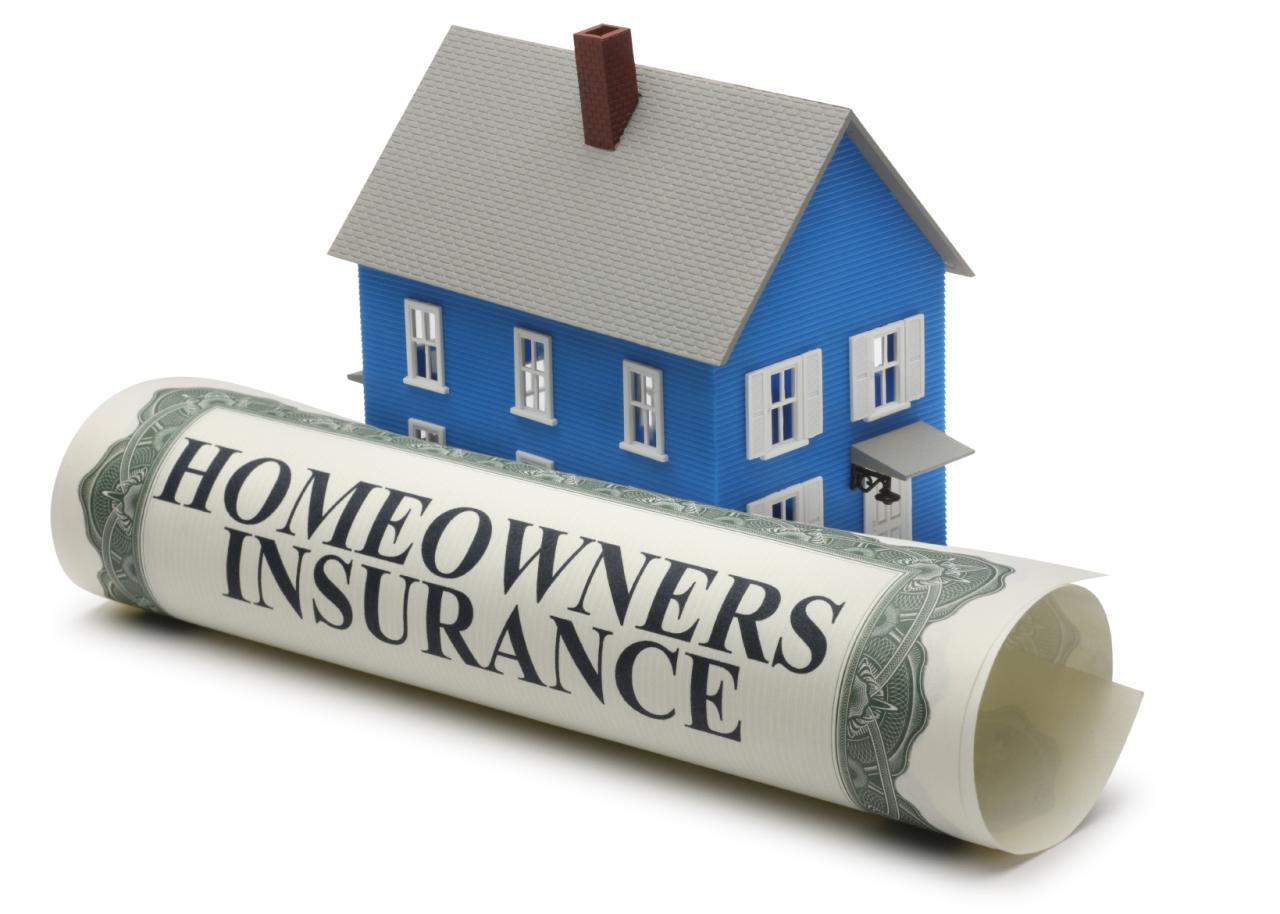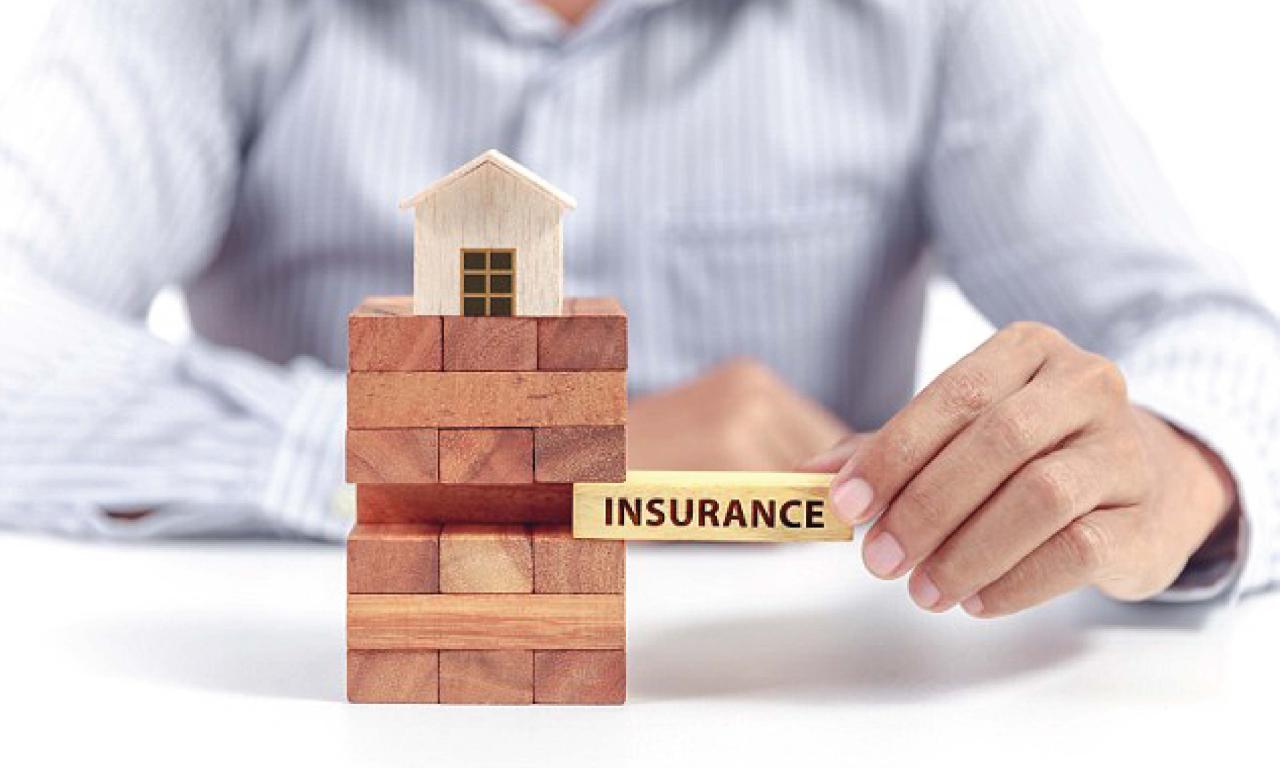Home insurance stands as a crucial safeguard for your most valuable possession – your home. It acts as a financial shield, protecting you from unforeseen circumstances that could leave you financially vulnerable. From natural disasters to unexpected accidents, home insurance provides peace of mind, knowing that you have a safety net in place to help you rebuild and recover.
This comprehensive guide delves into the intricacies of home insurance, exploring its purpose, coverage options, factors influencing premiums, and the importance of choosing the right policy. We’ll also guide you through the process of filing a claim, discuss disaster preparedness, and shed light on common exclusions and essential considerations related to homeowners associations, mortgage lenders, and personal liability.
Common Home Insurance Exclusions

Home insurance policies are designed to protect you from a wide range of risks, but they are not all-encompassing. There are specific events or situations that are typically excluded from coverage. Understanding these exclusions is crucial to ensure you have the right level of protection for your home and belongings.
Common Exclusions in Standard Home Insurance Policies
It’s important to be aware of the common exclusions in standard home insurance policies, as they can significantly impact your coverage in the event of a claim. Here are some examples:
- Acts of War or Terrorism: Standard home insurance policies generally exclude coverage for damage caused by acts of war or terrorism. These events are often considered high-risk and unpredictable, making them difficult to insure.
- Earthquakes: Earthquakes are a natural disaster that can cause extensive damage to homes. While some insurers offer earthquake coverage as an optional add-on, it’s not typically included in standard policies.
- Flooding: Flooding, whether caused by heavy rainfall, overflowing rivers, or storm surge, is another common exclusion. This is because flooding is often widespread and difficult to predict.
- Neglect or Intentional Acts: Home insurance policies generally do not cover damage resulting from negligence or intentional acts by the policyholder. This includes situations like leaving a faucet running and causing flooding or intentionally damaging your own property.
- Wear and Tear: Normal wear and tear on your home or belongings is not covered by home insurance. This includes things like fading paint, worn-out carpets, or appliances that break down due to age.
Home Insurance and Homeowners Associations (HOAs)

Homeowners Associations (HOAs) play a significant role in the lives of many homeowners, influencing various aspects of property ownership, including insurance requirements. Understanding the relationship between HOAs and home insurance is crucial for homeowners to ensure their properties are adequately protected and that they comply with HOA regulations.
HOA Influence on Insurance Requirements
HOAs often have specific insurance requirements for their community members. These requirements are typically Artikeld in the HOA’s governing documents, such as the covenants, conditions, and restrictions (CC&Rs). HOAs may mandate minimum coverage amounts, specific types of insurance, and even require homeowners to name the HOA as an additional insured on their policies.
Common HOA Insurance Regulations
HOAs may have a variety of insurance regulations that homeowners need to be aware of. Here are some common examples:
- Minimum Coverage Amounts: HOAs may require homeowners to maintain a minimum amount of liability coverage on their policies, such as $100,000 or more. This ensures that the HOA and other residents are protected in case of accidents or injuries on the homeowner’s property.
- Required Insurance Types: HOAs often mandate homeowners to carry specific types of insurance, such as dwelling coverage, personal liability coverage, and flood insurance if the community is located in a flood-prone area.
- HOA as Additional Insured: Some HOAs require homeowners to name the HOA as an additional insured on their policies. This means that the HOA would be covered if an incident occurs on the homeowner’s property that results in damage to common areas or injuries to other residents.
- Proof of Insurance: HOAs may require homeowners to provide proof of insurance periodically, such as a copy of their insurance declaration page. This helps ensure that homeowners are maintaining the required coverage.
Complying with HOA Insurance Mandates
Homeowners can comply with HOA insurance mandates by taking the following steps:
- Review HOA Documents: Carefully review the HOA’s governing documents, including the CC&Rs, to understand the specific insurance requirements.
- Consult with an Insurance Agent: Discuss your HOA’s insurance requirements with an insurance agent who can help you obtain the appropriate coverage and ensure compliance.
- Maintain Required Coverage: Ensure that your home insurance policy meets or exceeds the minimum coverage amounts and includes the required types of insurance.
- Provide Proof of Insurance: Provide the HOA with proof of insurance as requested, such as a copy of your insurance declaration page.
- Notify the HOA of Changes: Notify the HOA if you make any changes to your insurance policy, such as increasing or decreasing coverage or changing insurance providers.
Home Insurance and Personal Liability

Your home insurance policy typically includes personal liability coverage, which protects you financially if you are held responsible for an accident or injury that occurs on your property or as a result of your actions. This coverage is essential for safeguarding your financial well-being and can help you avoid significant financial losses.
Personal Liability Coverage Explained
Personal liability coverage provides financial protection against claims made against you for bodily injury, property damage, or other losses caused by your negligence. This coverage extends to you, your family members living in your home, and even your pets. The amount of coverage provided varies depending on your insurance policy and the specific situation.
Examples of Situations Where Personal Liability Coverage May Apply
Personal liability coverage can be crucial in various situations, including:
- A guest slips and falls on your icy driveway, injuring themselves.
- Your dog bites a neighbor’s child while visiting their home.
- A tree on your property falls onto your neighbor’s car during a storm.
- You accidentally damage a neighbor’s fence while mowing your lawn.
- Your child throws a ball through a neighbor’s window.
How Insurance Protects Homeowners
In the event of a covered incident, your personal liability insurance will cover the following:
- Legal Defense Costs: Your insurer will pay for legal representation and other expenses associated with defending yourself against a claim.
- Medical Expenses: If someone is injured on your property, your insurer will cover their medical bills up to your policy limits.
- Property Damage: If you cause damage to someone else’s property, your insurer will pay for repairs or replacement costs.
- Loss of Income: In some cases, your insurer may cover lost income if you are unable to work due to an injury caused by your negligence.
Minimizing Personal Liability Risks, Home insurance
You can take steps to reduce your personal liability risks and protect yourself from potential claims:
- Maintain a Safe Property: Regularly inspect your property for hazards such as loose steps, uneven walkways, or slippery surfaces. Address any potential safety concerns promptly.
- Train Pets: Ensure your pets are properly trained and supervised to prevent them from causing harm to others.
- Be Aware of Your Surroundings: Pay attention to your surroundings and take precautions to avoid causing accidents or injuries to others.
- Maintain Proper Documentation: Keep records of any repairs or maintenance work performed on your property to demonstrate that you have taken reasonable steps to ensure safety.
Wrap-Up
Understanding home insurance is paramount to protecting your investment and securing your future. By carefully evaluating your needs, comparing policy options, and staying informed about essential aspects like exclusions and disaster preparedness, you can make informed decisions that ensure adequate coverage for your home and provide financial security in the face of life’s unexpected events. Remember, home insurance is not just a policy; it’s a safety net that can make a world of difference when you need it most.
Home insurance can cover a wide range of unexpected events, from natural disasters to theft. However, if you’re struggling to control your entertainment system with multiple remotes, you might find it helpful to learn how to program an RCA universal remote, which can simplify things significantly.
You can find detailed instructions on how to program an RCA universal remote here. After you’ve set up your universal remote, you can relax knowing that your home is protected by insurance and that you have a streamlined way to enjoy your entertainment.